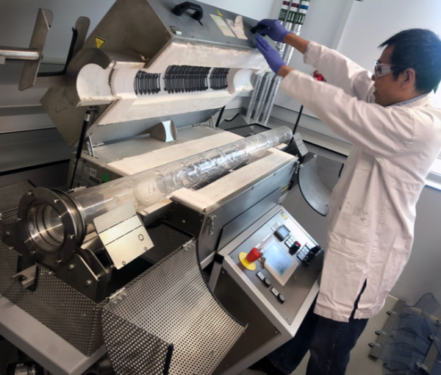A consortium funded by the UK’s government will work toward developing a graphite-based anode to allow solid-state batteries to meet the performance demands required by electric vehicles.
The project will replace metallic lithium anodes in solid-state batteries with consortium partner Talga Technologies’, a subsidiary of Australian firm Talga Resources’, graphite carbon anode Talnode-E product.
Consortium members also include: UK-based chemicals company Johnson Matthey and battery research and UK development institute Sheffield University.
The move comes as automotive OEMs begin preparations to incorporate solid-state batteries into their vehicles by 2025.
A Talga statement said: “While solid-state batteries are theoretically capable of very high performance, in practice they can suffer a range of technical and commercial issues that have hindered development, particularly for larger-scale applications such as electric vehicles.
“None of the solid-state batteries reported to date exceed all of the performance and economic requirements of today’s best lithium-ion batteries in EV’s.
“A major bottleneck of solid state development is the anode, where the use of metallic lithium can cause a range of issues leading to slower charge/discharge characteristics, safety issues both within the battery and in mass production, and higher cost.”
The Talnode-E is designed to charge faster, have higher power, easier processability, safer handling, highly scalability and lower costs.
The funding comes from the UK Government’s Faraday Battery Challenge ‘Industrial Strategy Challenge Fund’ initiative and the UK’s innovation agency, Innovate UK.
Image: Talga Senior Battery Scientist, Dr Fengming Liu












